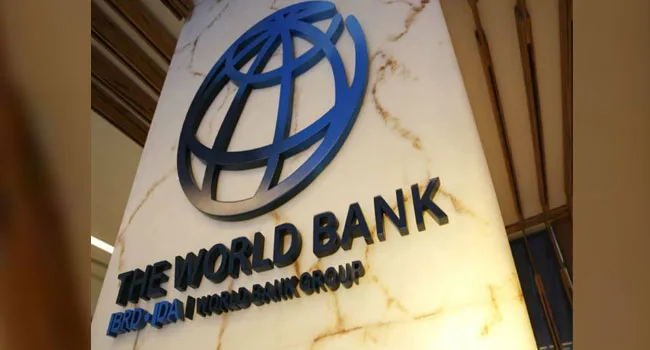The World Bank Group has announced a 30-month debarment of two Nigerian companies, Viva Atlantic Limited and Technology House Limited, along with their Managing Director and CEO, Mr. Norman Didam, for engaging in fraudulent, collusive, and corrupt practices related to the National Social Safety Nets Project in Nigeria.
In a statement released on Monday, the World Bank explained that the project, designed to provide targeted financial assistance to vulnerable households, was compromised by unethical conduct during a 2018 procurement process and subsequent contract awarding.
The statement read: “The World Bank Group today announced the 30-month debarment of two Nigeria-based companies—Viva Atlantic Limited and Technology House Limited—and their Managing Director and Chief Executive Officer, Mr. Norman Bwuruk Didam. The debarment is linked to fraudulent, collusive, and corrupt practices associated with the National Social Safety Nets Project in Nigeria.”
The World Bank detailed how Viva Atlantic Limited, Technology House Limited, and Didam misrepresented conflicts of interest in their bids and improperly obtained confidential tender information from public officials. These actions were identified as fraudulent and collusive, violating the bank’s Anti-Corruption Framework.
Additionally, the bank noted that Viva Atlantic Limited and Didam falsified the company’s experience records, submitted forged manufacturer authorization letters, and provided inducements to project officials, which it classified as corrupt practices. These violations, the bank stated, undermined the integrity of the initiative meant to aid Nigeria’s most vulnerable populations.
“The facts of the case and the general principles of the World Bank’s Anti-Corruption Framework reveal that, in connection with a 2018 procurement and subsequent contract, Viva Atlantic Limited, Technology House Limited, and Mr. Didam misrepresented conflicts of interest in their Letter of Bids and received confidential tender information from public officials, constituting fraudulent and collusive practices. Furthermore, Viva Atlantic Limited and Mr. Didam misrepresented the company’s experience, submitted falsified manufacturer’s authorization letters, and offered things of value to project officials, all of which were corrupt practices,” the statement read.
As a result of the debarment, the companies and Didam are prohibited from participating in World Bank-financed projects for the duration of the penalty.
In their settlement agreements, the parties acknowledged their wrongdoing and agreed to fulfill several conditions, including strengthening compliance measures. Didam is required to complete individual ethics training, while the companies must improve their internal integrity compliance policies and implement corporate ethics training programs in accordance with the World Bank’s Integrity Compliance Guidelines.
The World Bank noted that the debarment periods were reduced due to the cooperation of the parties during the investigation, their voluntary corrective actions, self-imposed restraint from bidding for contracts, and the time elapsed since the infractions.
The statement also emphasized that the debarments are subject to cross-debarment by other multilateral development banks under the Agreement for Mutual Enforcement of Debarment Decisions, signed in April 2010.
“The companies and Mr. Didam have committed to continue cooperating fully with the Bank Group’s Integrity Vice Presidency,” the statement added. “The reduced debarment periods reflect their cooperation with the investigation, voluntary corrective actions, and restraint from participating in Bank Group tenders.”
The World Bank reiterated its commitment to ensuring transparency and accountability in development projects, underscoring that the sanctions serve as a testament to its zero-tolerance approach to corruption.


